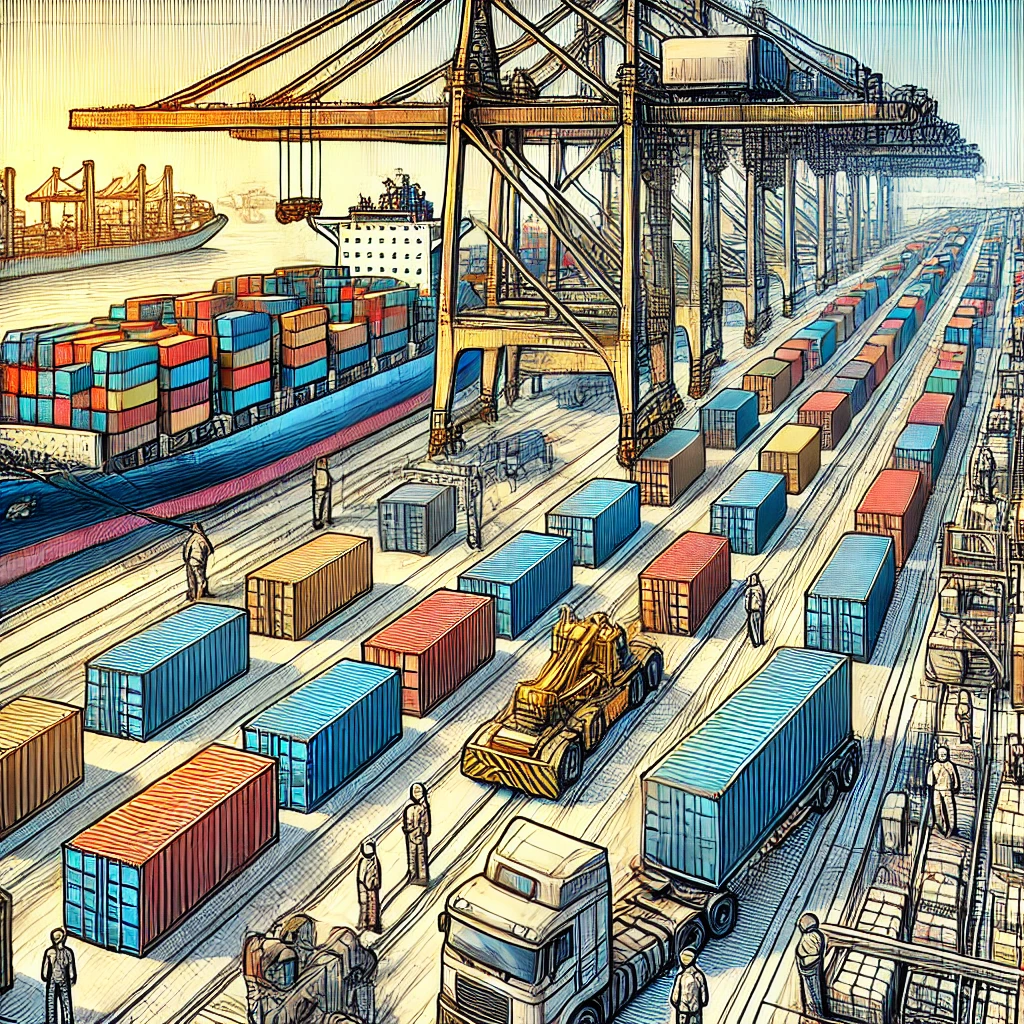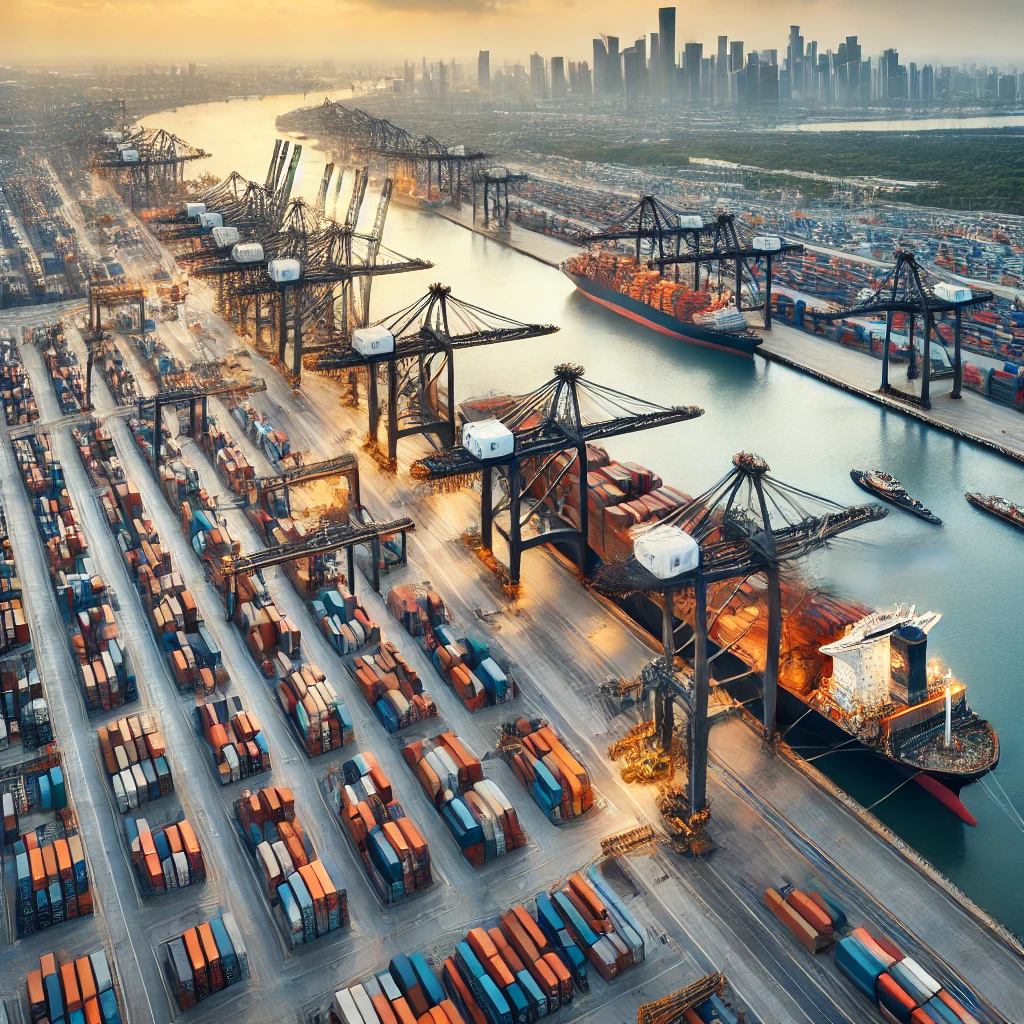A Beginner's Guide to Bayport Terminal
This guide provides a detailed explanation of Bayport Terminal, highlighting its key features, practical applications, and relevance for professionals and businesses.
What Is Bayport Terminal?
Bayport Terminal is a state-of-the-art container and cargo facility located in Houston, Texas, operated by the Port of Houston Authority. It serves as a key entry and exit point for international trade, handling containerized goods, project cargo, and intermodal logistics.
Key Bayport Terminal Features
Feature | Description |
Location | Houston, Texas (U.S. Gulf Coast) |
Type | Deepwater container terminal |
Capacity | Millions of TEUs (Twenty-Foot Equivalent Units) annually |
Facilities | On-dock rail, container storage, advanced cargo-handling equipment |
Connectivity | Access to rail, trucking, and global shipping lines |
Key Functions of Bayport Terminal
1. Containerized Cargo Handling
- Specializes in import and export cargo movement.
- Uses advanced cranes and automation for efficient operations.
2. Intermodal Freight Connections
- Integrates with rail networks, trucking, and ocean carriers.
- Reduces shipping delays with efficient cargo transfer systems.
3. Customs & Import/Export Processing
- Facilitates U.S. customs clearance for inbound and outbound goods.
- Supports freight forwarding and bonded warehouse services.
4. Real-Time Cargo Tracking
- Offers digital container tracking for shipment visibility.
- Provides online access to vessel schedules and port operations.
5. Bulk & Project Cargo Management
- Handles specialized cargo, oversized loads, and industrial freight.
- Uses dedicated storage areas and heavy-lift cranes.
Practical Uses of Bayport Terminal
1. International Trade & Supply Chain Logistics
- Businesses use the terminal to import/export goods worldwide.
2. Freight Forwarding & Cargo Distribution
- Supports third-party logistics (3PL) providers for efficient shipping.
3. Manufacturing & Industrial Shipping
- Handles raw materials, machinery, and heavy equipment transport.
4. E-Commerce & Retail Distribution
- Helps companies ship consumer goods, electronics, and packaged items.
5. Energy & Chemical Transport
- Located near Houston’s petrochemical industry, supporting oil, gas, and chemical shipments.

Advantages and Challenges of Bayport Terminal
Advantages | Challenges |
Strategic Gulf Coast location for U.S. and international trade. | High traffic and congestion can cause operational delays. |
Advanced cargo-handling technology for faster shipments. | Customs clearance times vary based on regulatory processes. |
Direct access to rail and truck networks for smooth logistics. | Weather disruptions (hurricanes, storms) can impact port activities. |
Strong infrastructure for bulk, containerized, and project cargo. | Peak shipping seasons may lead to longer wait times. |
Bayport Terminal vs. Other U.S. Container Terminals
Terminal | Location | Key Strengths |
Bayport Terminal | Houston, TX | Gulf Coast trade, energy sector shipping, intermodal access. |
Port of Los Angeles | California | Largest U.S. container port, high-volume Pacific trade. |
Port of New York/New Jersey | East Coast | Key Atlantic trade hub, strong rail connectivity. |
Port of Savannah | Georgia | Fast-growing port with advanced automation. |

When to Use Bayport Terminal?
- Best for businesses shipping to/from the U.S. Gulf Coast and international markets.
- Ideal for companies requiring strong intermodal connections (rail, truck, sea).
- Recommended for industries like manufacturing, energy, and consumer goods trade.
- Not suitable for air cargo or small-scale shipments that don’t require port logistics.
Conclusion
Bayport Terminal is a major gateway for global shipping, providing efficient container handling, freight forwarding, and intermodal logistics solutions.
With its strategic location, advanced cargo-handling technology, and strong supply chain connectivity, it remains a key asset for businesses involved in international trade and logistics operations. Whether you’re an importer, exporter, or logistics provider, leveraging Bayport Terminal’s capabilities can streamline shipping processes and improve global trade efficiency.
